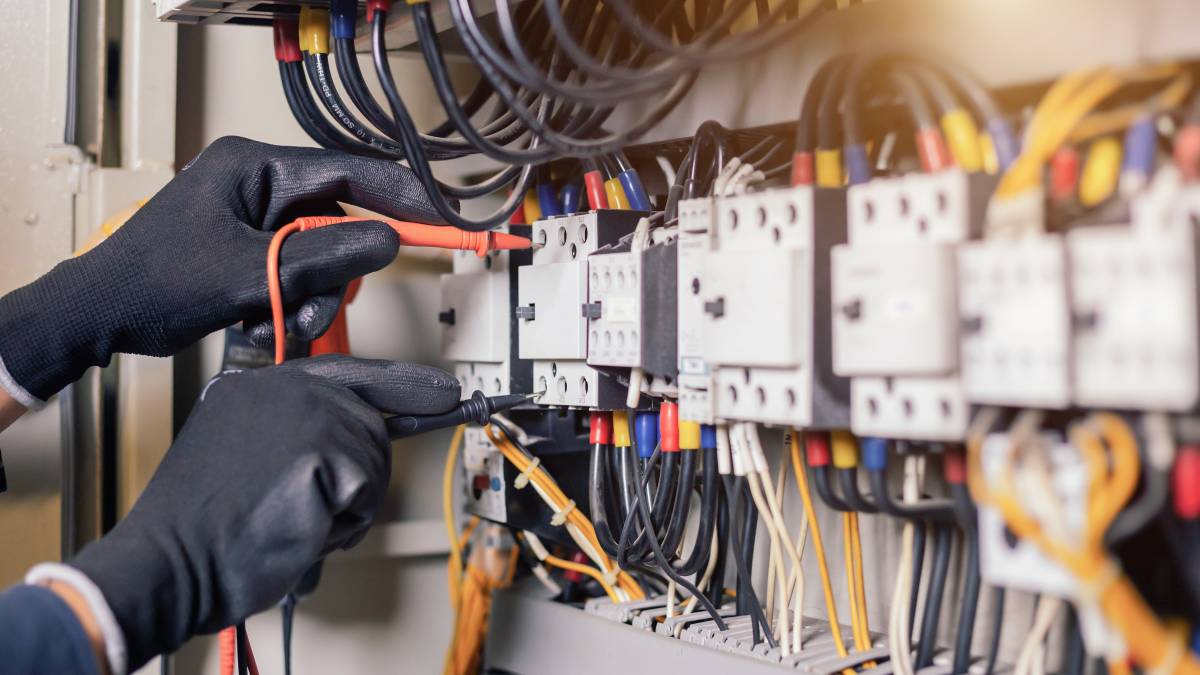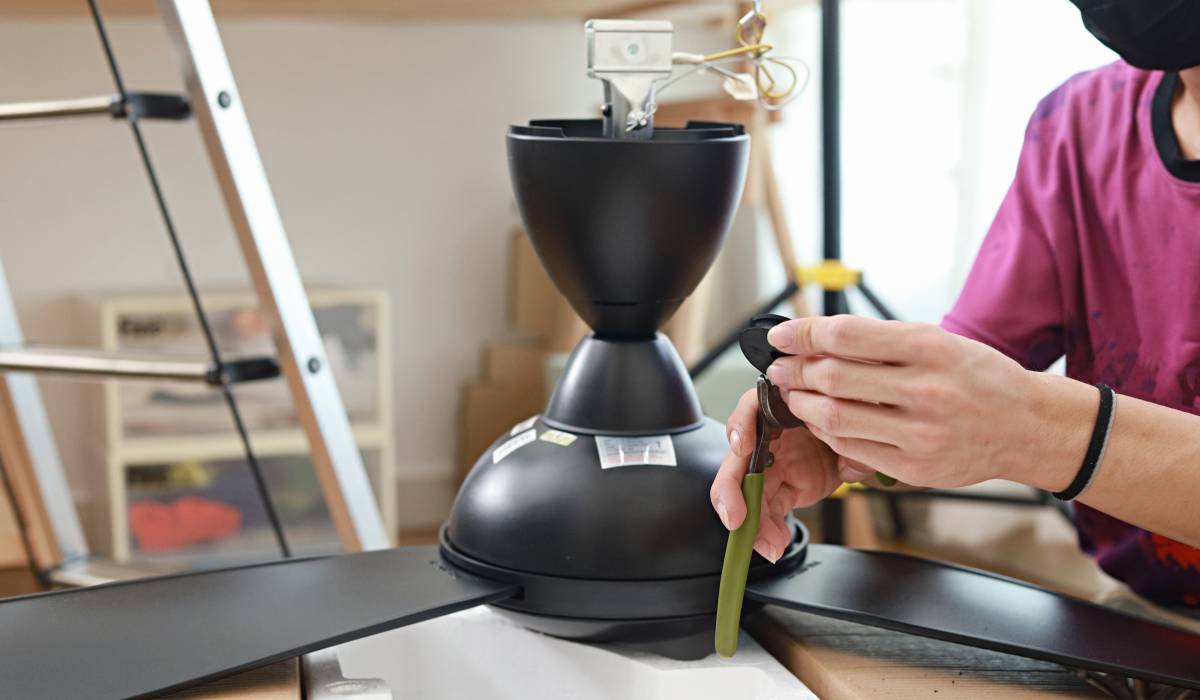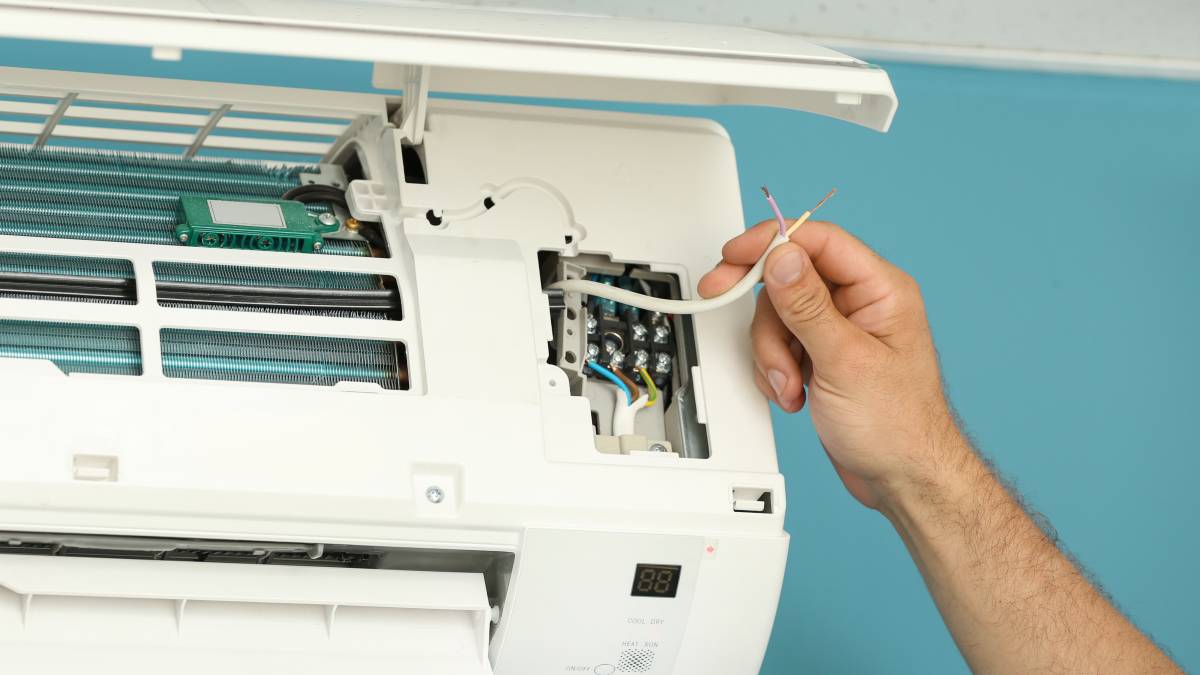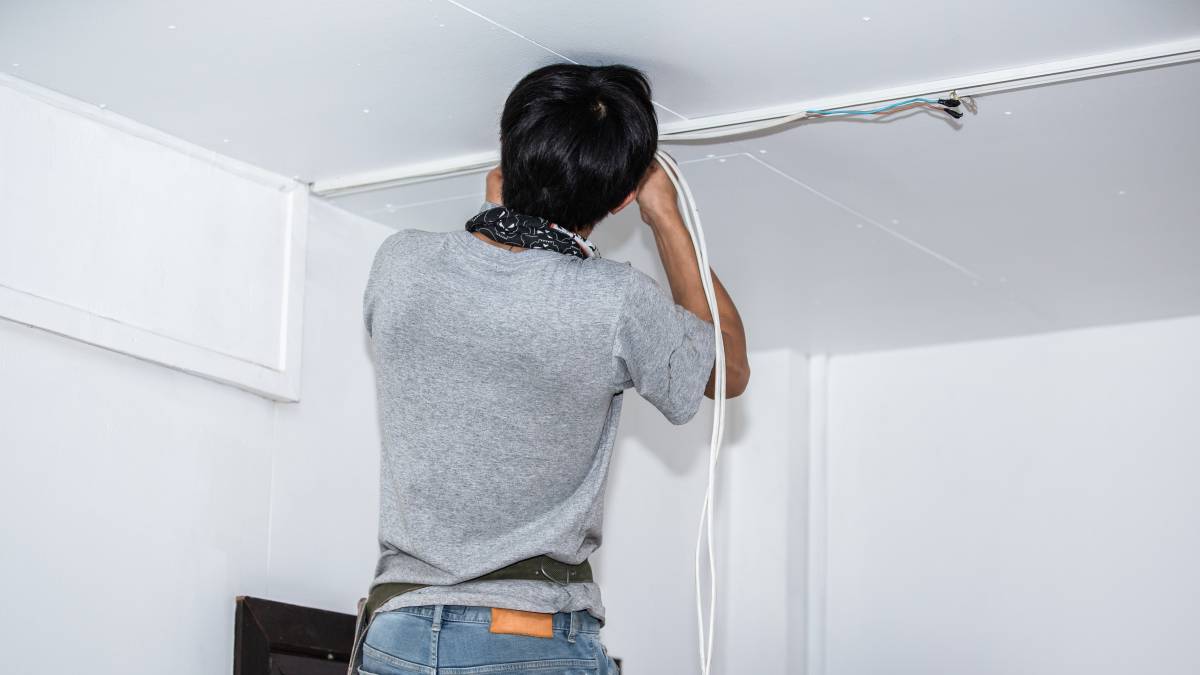- Home/
- Guides/
- Electricians/
- What Happens When Water Hits an Electrical Outlet
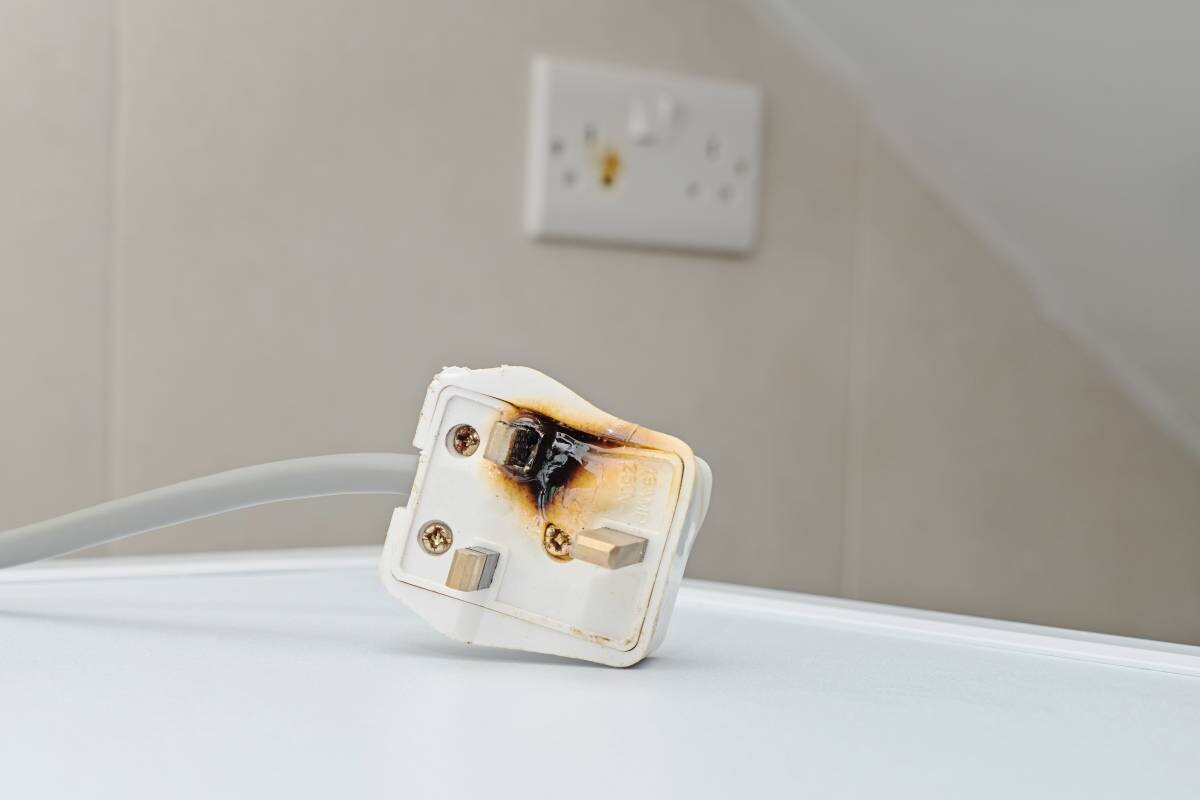
What happens when water hits an electrical outlet?
Water in an electrical outlet can cause electrical shock, a short circuit, or fire.
Find electricians near youLast Updated on
It’s a known fact that water and electricity don’t go well together. Water in an electrical outlet can cause electrical shock, a short circuit, or fire. Water has conductor properties and gives a clear path for electricity to travel – and it could lead to fatal consequences in a matter of seconds!
Many situations can cause water ingress in a socket, including a burst pipe, plumbing leaks, heavy rain, and flooding.
Here’s an overview of what happens when electricity touches water:
Electrical shock
Electrical shock can happen when you touch a wet socket, a damaged or frayed cord, or even a power line outside.
A burn and pain are common effects of an electrical shock. When an electrical shock is severe, it can even cause death. Fortunately, electrical shocks are usually harmless and low in voltage.
But to eliminate any risk, you should avoid going near a wet electrical outlet at all costs.
Short circuit
Damaged or loose wires can cause a short circuit. Short circuits occur when electricity travels through a shorter distance than intended and hot wire touches a conductive object.
Fires, burns, and electrocution are the most common dangers of a short circuit. What’s more, a short circuit can damage your appliances and electrical system.
Electrical fire
Electrical fires can also happen when water touches electricity and sets off sparks.
The common causes of electrical fires include:
Water and moisture
Faulty electrical outlets and wires
Overloaded electrical circuits
Old appliances with frayed cords
Watch out for unexplained burning smells and excessively hot appliances. These may be signs of a fire waiting to happen.
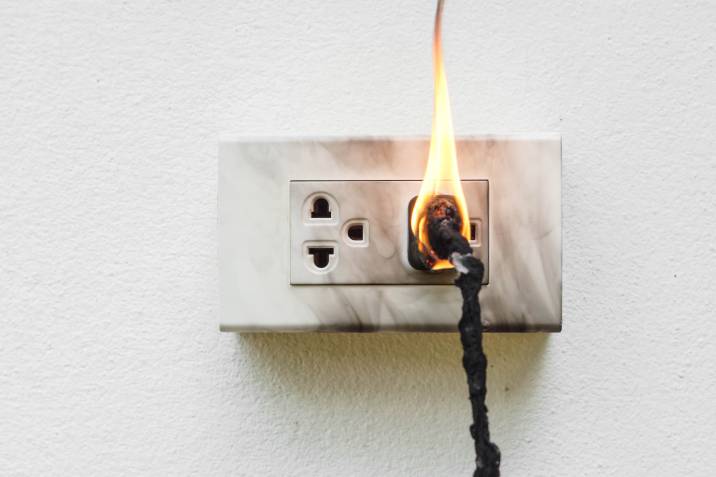
When water gets into your electrical outlet, shut off your electricity immediately. This way, you can keep yourself, your family, and your property safe. Then, hire a qualified technician to inspect your electrical outlets and do any necessary repairs.
The key is to act fast before water gets all over your wires, causes corrosion, and poses a danger.
What to do when your electrical outlet gets wet
Before calling an electrician, you can take these immediate steps when water hits an electrical outlet.
1. Switch off the GFCI outlet.
A ground fault circuit interrupter (GFCI) shuts off power to your outlet when it detects imbalances and water contact. As a result, your outlet can be safe from water damage when water or humidity enters the outlet.
Unfortunately, the GFCI outlet sometimes fails to turn off on its own. When in doubt, use a voltage metre to check if your GFCI outlet was shut down correctly. Then, turn off the GFCI manually by simultaneously pressing the test and reset button on the outlet.
Call a professional electrician if a lot of water has entered your outlet or you’re not confident to check your GFCI outlet yourself.
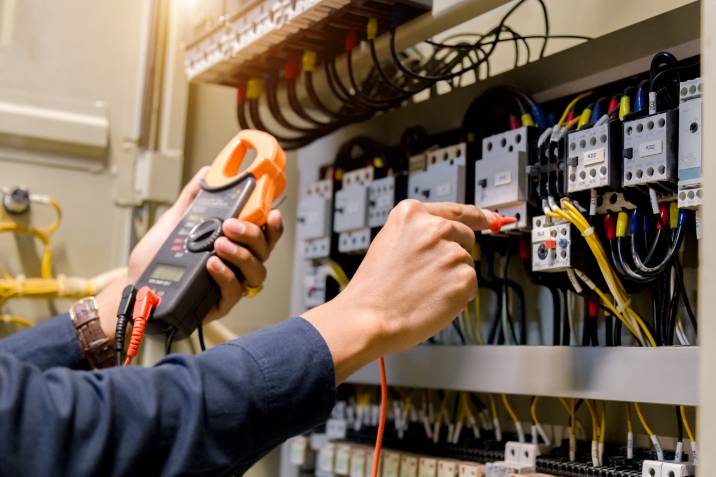
2. Turn off your circuit breaker or electricity box.
Consider turning off your breaker box aside from shutting down your GFCI outlets. Doing so can make it easier to dry the outlets and prevent electric shock. Shutting off your breaker box is especially important if several outlets are wet.
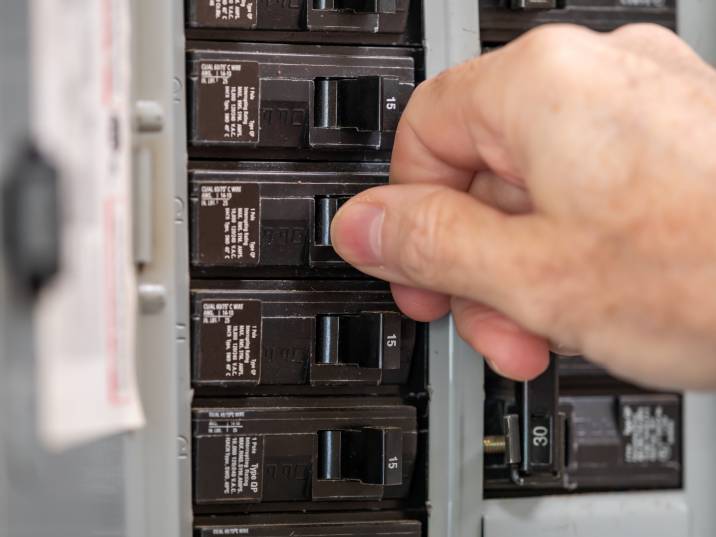
Here are three ways to turn off your circuit breaker:
Option 1: Properly labelled breakers - Simply switch off the individual breakers connected to the wet outlet.
Option 2: Breakers without proper labels - Turn off all the breakers. Alternatively, turn the breakers off one by one until you identify the correct ones.
Option 3: Hire an electrician to shut down the correct breaker. Avoid touching or using the outlet until it has been checked by a professional.
3. Dry your outlet .
Allow your outlet to dry overnight in case of minor water damage. You can also speed up the drying process with a blow dryer. (However, avoid using the blow dryer if you suspect water ingress in your other outlets.)
It’s best to replace your outlet if too much water has entered and you can’t dry it properly.
4. Call an electrician
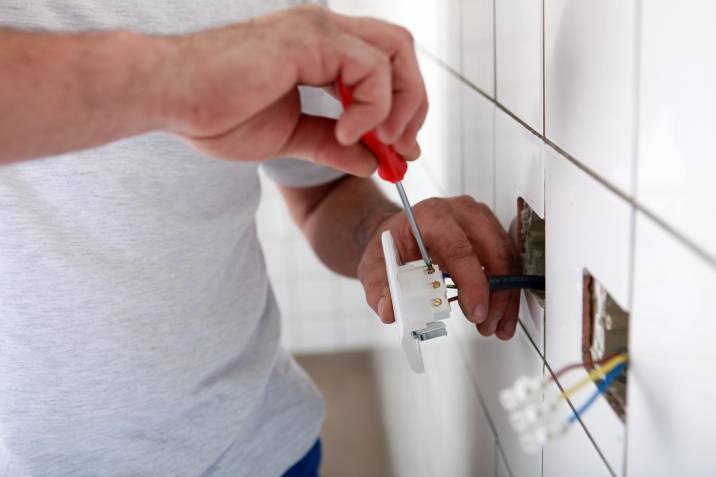
Your wiring can still suffer corrosion and other damage even after you’ve dried out your GFCI outlet.
For your utmost safety, you should hire an electrician to conduct an electrical test after water damage. After an assessment, your electrician can properly and safely repair or replace your outlet.
Related articles
Related price guides
